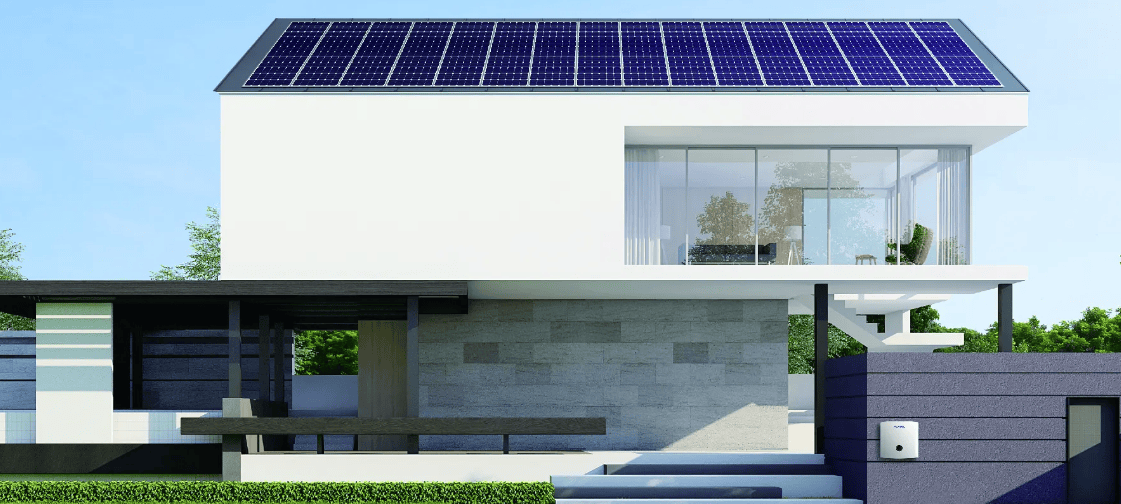Introduction
In the ever-evolving landscape of renewable energy, hybrid solar power inverters have emerged as a revolutionary technology. These inverters play a pivotal role in optimizing the use of solar energy, offering a blend of traditional solar power conversion and energy storage capabilities. This article delves deep into the world of hybrid solar power inverters, exploring their functionality, benefits, key considerations, and AUXSOL's offerings in this domain.
How Hybrid Solar Power Inverters Function
Dual-Mode Operation
Hybrid solar power inverters are designed to perform two primary functions. Firstly, they convert the direct current (DC) generated by solar panels into alternating current (AC), which is the standard form of electricity used in homes, commerce and industries. This conversion process is essential as solar panels operate on the principle of the PV effect, producing DC power. The inverter uses power-electronics components, such as transistors and capacitors, to manipulate the electrical signal and generate a stable AC output.
Secondly, these inverters manage the charging and discharging of batteries. During periods of high solar energy production, when the electricity generated by the solar panels exceeds the immediate consumption needs, the excess DC power is diverted to charge the batteries. When solar production is low, such as at night or during cloudy days, the inverter draws power from the batteries, converts it from DC to AC, and supplies it to the electrical load. This dual-mode operation ensures a continuous and reliable power supply, regardless of the solar irradiance levels.
Grid Interaction
In many cases, hybrid solar power inverters can also interact with the electrical grid. In grid-connected hybrid systems, the inverter synchronizes the AC power it generates with the grid's voltage and frequency. When there is excess solar-generated power after charging the batteries and meeting the local load, the inverter can feed this surplus power into the grid. This can be beneficial for homeowners and entrepreneurs, as they may be eligible for net-metering programs, where they receive credits or payments for the electricity they supply to the grid. Conversely, during periods of high demand or low solar production, the system can draw power from the grid, ensuring a seamless power supply.
Benefits of Hybrid Solar Power Inverters
Energy Independence
One of the most significant advantages of hybrid solar power inverters is the ability to achieve a certain degree of energy independence. By storing excess solar energy in batteries, users are less reliant on the traditional power grid. In areas prone to power outages, such as regions affected by severe weather conditions or grid infrastructure issues, a hybrid solar system with a properly functioning inverter can continue to power essential appliances, providing a reliable backup power source. For example, a home equipped with a hybrid inverter and a battery bank can keep the lights on, the refrigerator running, and communication devices charged during a power cut.
Cost Savings
Hybrid solar power inverters can lead to substantial cost savings. Firstly, by using solar-generated electricity and stored battery power, users can reduce their consumption of grid-supplied electricity. This directly translates into lower electricity bills, especially in regions with high electricity tariffs. Additionally, in some cases, the excess electricity fed into the grid through net-metering can generate additional income. Over time, the cost savings from reduced grid reliance and potential grid-feed-in earnings can offset the initial investment in the hybrid solar power system.
Environmental Sustainability
Solar energy is a clean and renewable source of power, and hybrid solar power inverters contribute to environmental sustainability. By enabling more efficient use of solar energy, these inverters help reduce the reliance on fossil-fuel-based electricity generation. Fossil fuel power plants are major emitters of greenhouse gases, which contribute to climate change. Using a hybrid solar power system with an inverter can significantly reduce an individual's or a business's carbon footprint, making a positive impact on the environment.
Key Considerations When Choosing a Hybrid Solar Power Inverter
Power Capacity
The power capacity of the inverter is a crucial factor. It should be selected based on the size of the solar panel system and the expected electrical load. If the inverter's power rating is too low, it may not be able to handle the maximum power output of the solar panels or meet the energy demands of the connected appliances. On the other hand, an oversized inverter can be more expensive and may operate less efficiently.
Battery Compatibility
Since hybrid solar power inverters are closely associated with battery storage, battery compatibility is essential. Different types of batteries, such as lead-acid, lithium-ion, or nickel-cadmium, have different voltage, capacity, and charging characteristics. The inverter must be designed to work seamlessly with the chosen battery type to ensure proper charging, discharging, and overall system performance.
Efficiency
Inverter efficiency is another critical consideration. A highly efficient inverter will convert a larger percentage of the DC power from the solar panels and batteries into usable AC power. High-efficiency inverters can reduce energy losses during the conversion process, maximizing the amount of solar energy that can be utilized.
AUXSOL's Hybrid Solar Power Inverter Offerings
AUXSOL is a leading player in the solar energy industry, offering a range of high-quality hybrid solar power inverters. Their ASG-(3.6-6)SL-ZH is a testament to their commitment to innovation and quality. This inverter is designed to efficiently convert solar-generated DC power into AC power, with features like high-conversion efficiency and advanced grid-synchronization capabilities. It can handle the power output from medium-sized residential solar panel systems, making it suitable for a wide range of homes.
Conclusion
Hybrid solar power inverters are a game-changer in the renewable energy sector. They offer a practical solution for optimizing solar energy use, providing energy independence, cost savings, and environmental benefits. When choosing a hybrid solar power inverter, careful consideration of factors such as power capacity, battery compatibility, and efficiency is essential. AUXSOL's offerings in this area, make them a reliable choice for those looking to embrace the future of solar energy.

